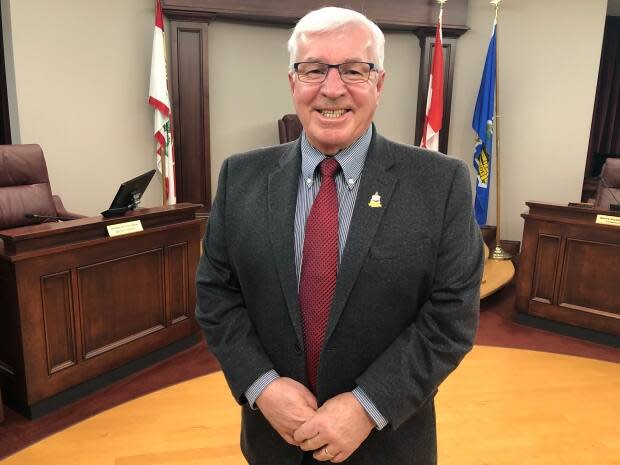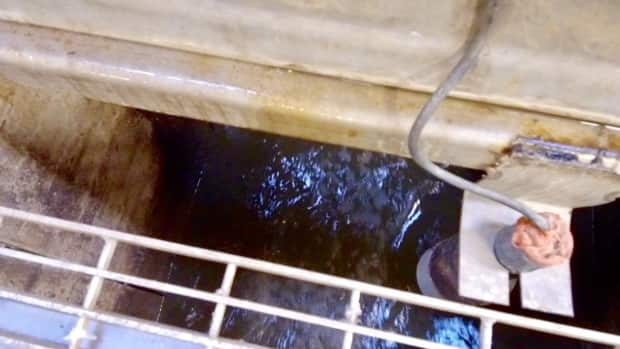More effluent than usual pumped into Summerside harbour due to 'glitch'
Summerside's sewage treatment plant is back in compliance following what city officials describe as a "glitch," which pumped higher than normal levels of effluent into the city's harbour for more than three weeks.
Bruce MacDougall, the councillor responsible for the water and sewer utilities, says staff noticed the higher than acceptable levels last month. He said federal and provincial officials were immediately notified and the shellfish fishery in the harbour was shut down.
"Late December, we had a little glitch in the system and whenever staff noticed it they notified the provincial and federal officials," MacDougall said in an interview with CBC News.
"We do testing every day and that's how we noticed it. So once we noticed the higher readings, we had to put an action together to bring those readings down."
'It wasn't raw discharge'
The problem was noticed Dec. 13. The levels did not return to normal until Jan. 6.

City officials say these events are rare ever since it invested more than $19 million into upgrades at the plant in 2008. The last time something like this happened was more than 10 years ago, the city said.
Morley Foy, an engineer with the Department of Environment, said operational issues created the higher than normal levels. He said the sewage was still being treated but the amount of solids being released into the harbour was higher than normal.
"It wasn't raw discharge by any means, but it was above the limits," said Foy.
"The UV system that's in place, the ultraviolet light that does the portion of the treatment for the disinfection was able to manage those high levels, and throughout the whole period when the facility was not working the way it should have been working, it was still performing very well for bacteria reduction."
'Changes to processing plants'
Foy said there was "very little impact" to the harbour.

"The time of year was very fortunate for this event in the sense that there was no recreational activity taking place within the harbour nor was there any fishing activities taking place within the harbour," said Foy.
Despite that, a shellfish closure was ordered Dec. 14.
A spokesperson with the federal Department of Fisheries said, "Signs were installed and the fishing industry was notified. No fishing activity was taking place in the area at that time.
"The area will remain closed until the beginning of the spring fishing season."
Greg Gaudet, Summerside's director of municipal services, said the city began work immediately to correct the problem.
But he said the fix took some time.
'Back into the safe zone'
"It usually takes about a 10- to 12-day time period, you got to realize all that liquid … has to work its way through the whole process of the plant," said Gaudet.

"What we believe may have happened, there may have been some changes to processing plants in Summerside in December, they may have had some shutdowns, in which case they weren't putting out any biological oxygen demand into the sewer system, which gave our system that we had fine-tuned a little burp.
"Basically, it upset the process."
Gaudet said they plan to improve communications between the city and its biggest sewage customers.
"When they change their operations, we have to change ours."
The Summerside sewage treatment plant not only treats sewage from the city, it also treats waste from people's homes throughout Prince County.
When somebody has their private sewage tank cleaned, that waste ends up at the Summerside plant.
MacDougall said these events are rare and the city works hard to ensure they don't happen.
"Everything has been brought back into the safe zone," MacDougall told city councillors during a meeting on Monday night.
"We've got the all clear now."
More from CBC P.E.I.
